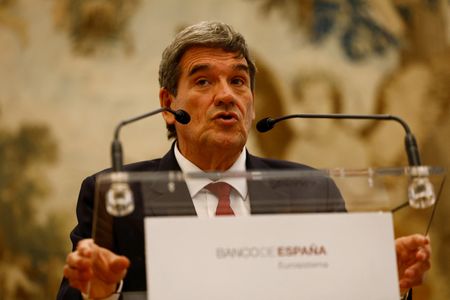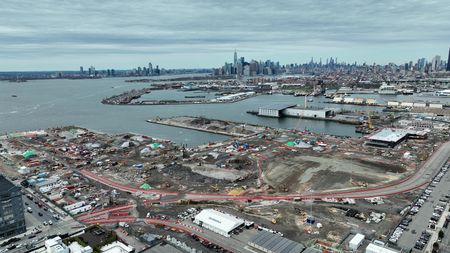MADRID (Reuters) -Geopolitical and trade tensions stemming from U.S. tariffs pose a risk to the stability of the global financial system and to global economic growth, European Central Bank policymaker Jose Luis Escriva warned on Tuesday.
U.S. President Donald Trump has repeatedly threatened an array of punitive measures against trading partners, only to revoke some of them at the last minute, baffling world leaders and spooking business executives.
Escriva saw the unpredictability of the Trump administration’s policies, from trade to wider economy, as one of the risks defining the global environment, with “possible deterioration of international investors’ confidence in the U.S. economy” also generating uncertainty.
“All these factors have a decisive impact on the global growth outlook and pose risks to the stability of the international financial system,” Escriva, who also chairs the Bank of Spain, wrote in its annual report.
An increase in tariffs would negatively affect global activity, particularly in the United States, and to a lesser extent in the euro zone and Spain, Escriva said, citing an analysis of several scenarios.
He still identified clear downward risks for the coming quarters for Spain in an uncertain environment.
“Although Spain’s direct trade exposure to the United States is relatively limited, indirect links through global supply chains, as well as global financial and confidence channels, are significant and must be monitored carefully,” Escriva said.
If the ‘reciprocal tariffs’ announced by Trump last month were finally implemented, the average tariff paid by Spain on its exports to the United States would increase to 18% from 12% now, he added.
(Reporting by Jesús Aguado, editing by Andrei Khalip)










